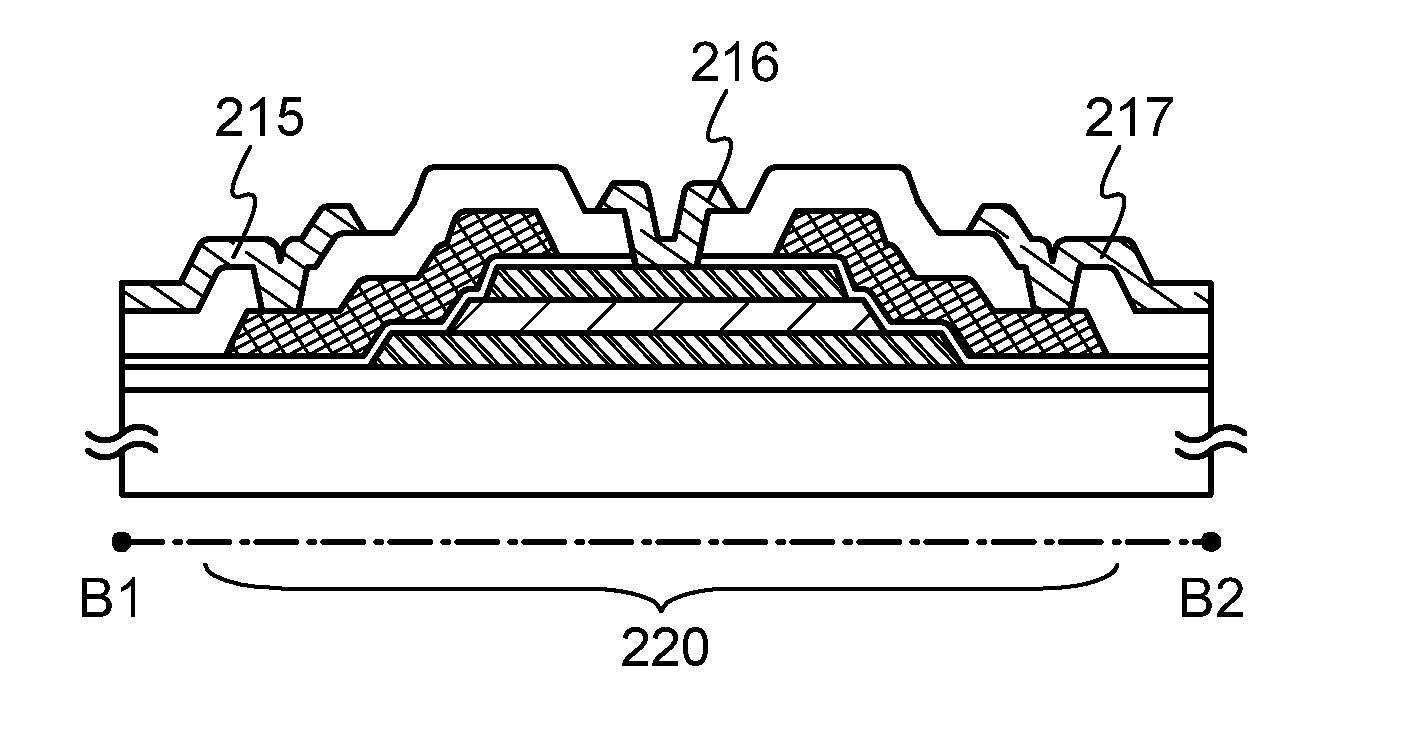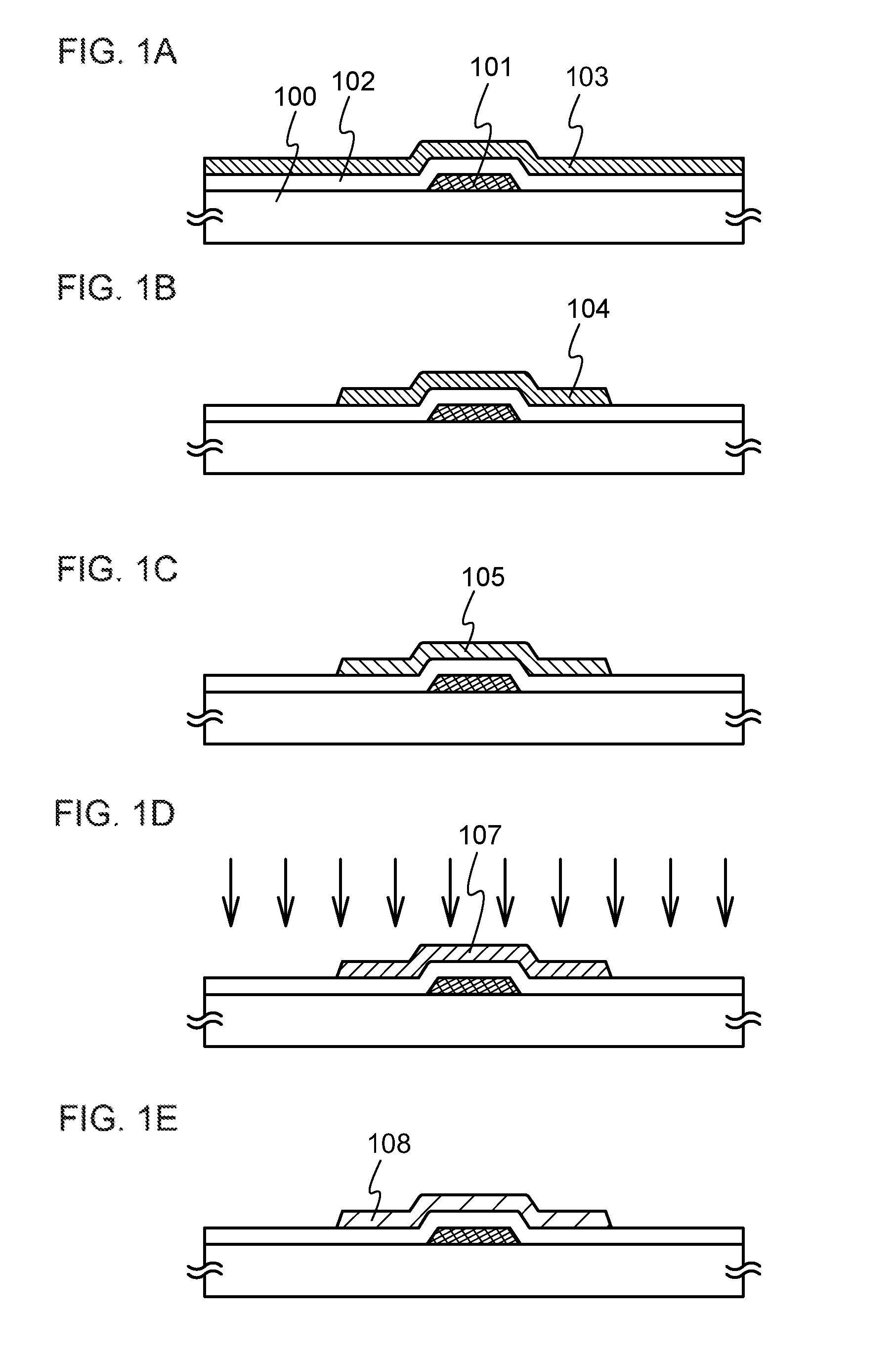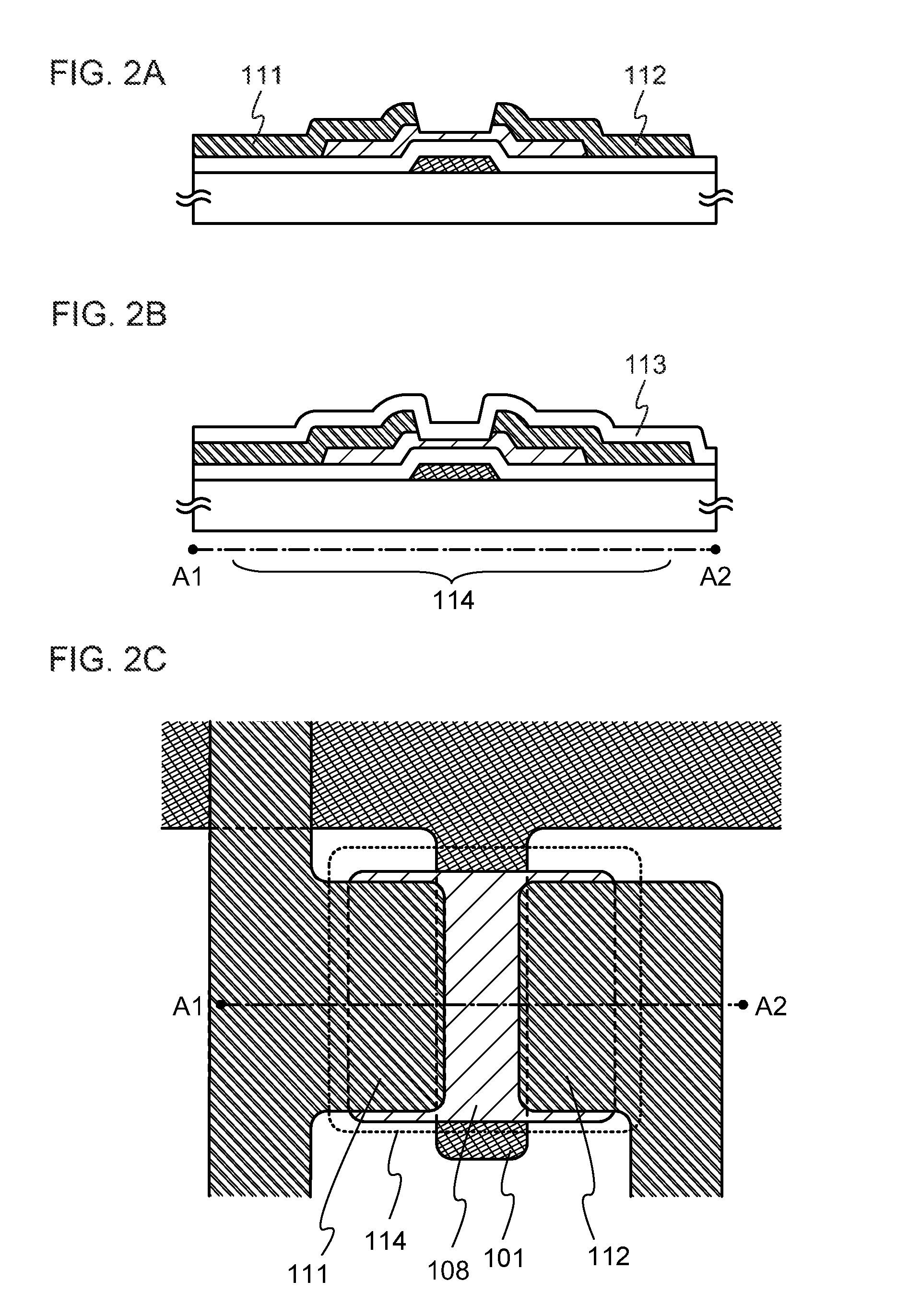Semiconductor device and manufacturing method thereof
- Summary
- Abstract
- Description
- Claims
- Application Information
AI Technical Summary
Benefits of technology
Problems solved by technology
Method used
Image
Examples
embodiment 1
[0052]A bottom-gate transistor having a channel-etched structure is taken as an example, and a structure of the transistor included in a semiconductor device according to one embodiment of the present invention and a manufacturing method thereof will be described.
[0053]As shown in FIG. 1A, a gate electrode 101 is formed over a substrate 100.
[0054]Although there is no particular limitation on a substrate that can be used as the substrate 100 having an insulating surface, it is necessary that the substrate has heat resistance high enough to withstand at least heat treatment to be performed later. For example, a glass substrate manufactured by a fusion method or a float method can be used. When the temperature of the heat treatment performed later is high, it is preferable to use a substrate having a strain point of 730° C. or higher as the glass substrate. For the glass substrate, a glass material such as aluminosilicate glass, aluminoborosilicate glass, or barium borosilicate glass i...
embodiment 2
[0152]In Embodiment 2, a structure and a manufacturing method of a transistor for a power device capable of higher voltage or higher current control will be described.
[0153]Embodiment 1 can be applied to the same portions as Embodiment 1 or portions having functions similar to those of Embodiment 1, and therefore, description thereof is not omitted.
[0154]As shown in FIG. 5A, an insulating film 201 which serves as a base film is formed over a substrate 200, and then, a first electrode 202 is formed.
[0155]The description on the substrate 100 described in Embodiment 1 can be referred to for a substrate to be used as the substrate 200. The description on the base film described in Embodiment 1 can be referred to for a material, the structure, and the thickness of the insulating film 201.
[0156]The first electrode 202 is formed using a metal element selected from aluminum, chromium, copper, tantalum, titanium, molybdenum, tungsten, or yttrium; an alloy containing any of these metal elemen...
embodiment 3
[0242]In Embodiment 3, a structure and a method for manufacturing a semiconductor device will be described using a bottom-gate transistor having a channel protective structure as an example. Embodiment 1 can be applied to the same portions as Embodiment 1 or portions having functions similar to those of Embodiment 1, and therefore, description thereof is not omitted.
[0243]The state shown in FIG. 1E described in Embodiment 1 is obtained through the process up to and including the second heat treatment in a similar manner. Next, as shown in FIG. 8A, a channel protective film 130 is formed over the oxide semiconductor film 108 so as to overlap with a region of the oxide semiconductor film 108, which overlaps with the gate electrode 101, that is, so as to overlap with a channel formation region. The channel protective film 130 can prevent the portion of the oxide semiconductor film 108, which serves as the channel formation region, from being damaged in a later step (for example, reduct...
PUM
 Login to View More
Login to View More Abstract
Description
Claims
Application Information
 Login to View More
Login to View More - R&D
- Intellectual Property
- Life Sciences
- Materials
- Tech Scout
- Unparalleled Data Quality
- Higher Quality Content
- 60% Fewer Hallucinations
Browse by: Latest US Patents, China's latest patents, Technical Efficacy Thesaurus, Application Domain, Technology Topic, Popular Technical Reports.
© 2025 PatSnap. All rights reserved.Legal|Privacy policy|Modern Slavery Act Transparency Statement|Sitemap|About US| Contact US: help@patsnap.com



